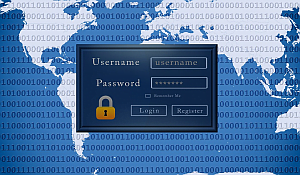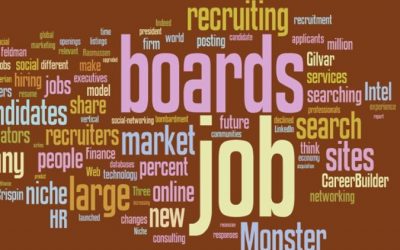I receive dozens of calls and emails every week on the subject of whether posting your resume is safe or should send that job boards pitfalls and privacy issues in red flashing lights. Here are a few job search tips to help you choose for a career search. Do NOT post your name, email address, resume, phone number, current and previous employer, and education information for all to view on a job board.With a labor participation rate at the lowest since the mid-1970s, there are millions of “wishers” (the un/under educated, inexperienced, under/over qualified), that make up a large chunk of the resumes on job boards. You simply get lost in the shuffle.
Job Boards Pitfalls – Overexposing your Resume
 There are three types of job boards. First is the “major” such as Monster, CareerBuilder, The Ladders, etc. Second are the niche such as oilandgaspeople who claims to have 5,843 Active Recruiters 163,926 candidates or MedRepCareers which focuses on medical services, medical devices, and pharmaceutical sales jobs. Third are the job aggregators such as Indeed.com and SimplyHired.com. If you choose to use the former’ let this be a warning : job boards pitfalls and privacy issues means you will likely to receive loads of emails about jobs related to “insurance and financial sales or analysts”, car sales, and “temporary full time jobs” offered by RPOs (recruitment processing outsourcing firms) or IT engineering services companies.
There are three types of job boards. First is the “major” such as Monster, CareerBuilder, The Ladders, etc. Second are the niche such as oilandgaspeople who claims to have 5,843 Active Recruiters 163,926 candidates or MedRepCareers which focuses on medical services, medical devices, and pharmaceutical sales jobs. Third are the job aggregators such as Indeed.com and SimplyHired.com. If you choose to use the former’ let this be a warning : job boards pitfalls and privacy issues means you will likely to receive loads of emails about jobs related to “insurance and financial sales or analysts”, car sales, and “temporary full time jobs” offered by RPOs (recruitment processing outsourcing firms) or IT engineering services companies.
Job Boards Pitfalls of Suspect Privacy Issues
Never show WHO your current employer is; instead use “Fortune 500 Widget Manufacturer” or Mid-Cap Widget Vendor”. Mention type of degree – not the university.NEVER post your resume/CV to a job board. Avoid the job boards pitfalls by NOT posting your resume/CV itself as it is the worst one-size-fits-all presentation tool ever imagined. Instead learn to create a ‘confidential profile”. Do this in MS Word, but post it in PDF. Here is what a careers focused profile should look like:
- Executive Summary – 200 word max overview of your experience and the top 2-3 accomplishments plus your career objective.
- Education, Amount of Travel willing to do (%), and Work Authorization Status
- Work Experience (always start with current and work backwards): type of company, your title, # years, and any promotions or special recognition
- Product or Service Lifecycle experience and your accomplishments
- Project or Leadership Roles (w/ team size/budget/sales volume/IP developed/problem fixed, etc..
- Your depth of Relationships. You do NOT need names; rather titles, last date connected, if internal or external customer/vendor, and if sales please include quota vs. actual numbers AND the sales cycles.
- Relocation Considerations
- This last one is OPTIONAL. Desired Compensation – what you DESIRE to have in base and bonus and/or commission – NEVER mention what you are making now.
Now on the other side of job boards pitfalls in your careers search, we look at the executive recruiter side. Here’s the tricky part – everyone thinks they are an “A Player” – reality check is less than 14% of the entire workforce is that. Next in line are the “B Players”, who compromise 30% to 35% of the workforce BUT in fact produce 8 to 10 times LESS than “A Players”.
For the 55% or more of any workforce they are “C players”. They can/will be replaced by automation or better people when production in the role becomes vital to the organization.If you speak with a retained search firm where they do not have a current search ideal for you, make sure you reconnect with them regularly every few months to get updated on potential careers and opportunities.
Choose to Post on Job Boards or Work with a Recruiter?
When choosing whether to use job boards in your career search or respond to an executive recruiter’s posting, another good reason for choosing the latter is that if your public resume is public or you have “I am seeking a job” or “I am looking for a career opportunity” in the title of your social profile, a good executive recruiter likely won’t touch you with a 10 foot pole. If you have your resume posted on several job boards, most recruiters will not be interested, but be forewarned, many corporate HR departments utilize RPOs (recruiting process organizations) usually based in some 3rd world country who will search and find your resume sending it to literally hundreds of companies. Talk about overexposure – the read is “what;s wrong about this person?”.
If in the end of the job boards pitfalls vs executive recruiters choice, if you choose an executive recruiter, find a good one and then network using social media and offline events to develop a relationship with him/her to enhance careers search.


 Well, as it happened, this CEO was very impressed by the actual hand written letter and was a big believer in the snail mail personal touch. Funny thing is the HR Manager told me she thought it was “old school” and out of touch.
Well, as it happened, this CEO was very impressed by the actual hand written letter and was a big believer in the snail mail personal touch. Funny thing is the HR Manager told me she thought it was “old school” and out of touch.